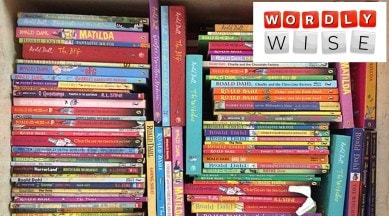Amid Roald Dahl rewrite controversy, a look into some wonderful Dahlisms, and his unique language, gobblefunk
Language experts say Roald Dahl built his vocabulary by using established patterns of word formation and sound symbolism, so that readers could make sense of the word even if they were encountering it for the first time.

Earlier this week, The Telegraph reported that Puffin, the publisher of Roald Dahl, one of the most popular authors of children’s books, had rewritten hundreds of expressions, to suit contemporary sensibilities about gender, colour and physical appearance. This was met with widespread criticism, including from authors Salman Rushdie and Philip Pullman and British Prime Minister Rishi Sunak.
Chastened, the latest from Puffin is that a collection of Dahl’s books with the unaltered text will “sit alongside the newly released books for young readers, the latter for those who may be navigating the content for the first time”.
To mark the centenary year of Dahl’s birth, the Oxford English Dictionary in 2016 updated its edition with six new words connected to the author’s writing, and revisions to four other phrases. The words are Dahlesque, golden ticket, human bean, Oompa Loompa, scrumdiddlyumptious and witching hour. Among the revised phrases are frightsome, gremlin, scrumptious and splendiferous. Some of these were in use before, but Dahl’s use of these in some of his most popular works, like Charlie and the Chocolate Factory, BFG, Matilda, The Witches, among others, planted them permanently on his young readers’ minds.
Earlier that year, the Oxford University Press also published a Roald Dahl Dictionary with 8,000 words coined or popularised by him. They are a whole lot of tongue-twisters and crisp-sounding ones like humplecrimp, lixivate, sogmire, zoonk, chiddlers, snozzberry, snozzcumber, snozzwanger, catasterous disastrophe, hirsute, asinine, oviform, trogglehumper among many more.
The language of Dahl, referred to as gobblefunk, may sound like gobbledegook but is far from being so. Language experts say he built his unique vocabulary by using established patterns of word formation and sound symbolism so that both children and adults could make sense of the word even if they were encountering it for the first time.
So, if you want to traverse the author’s world without being biffsquiggled, the Oxford Roald Dahl Dictionary is there to help you.
And, by the way, rewriting literary works is not something new. It started with Thomas Bowdler, who rewrote 20 of William Shakespeare’s plays in 1807 by removing words and expressions “which could not be with propriety be read aloud in a family” and named it The Family Shakespeare. In 1818, the second edition of 36 rewritten plays, including the earlier 20, came out. ‘Bowdlerising’ has since come to refer to the process of altering literary works on moral grounds.
We will have more about this and Dahl’s method in madness next week.
Wordly Wise is a weekly column by Amitabh Ranjan published every Saturday in the Explained section. Please tweet your feedback to @ieexplained